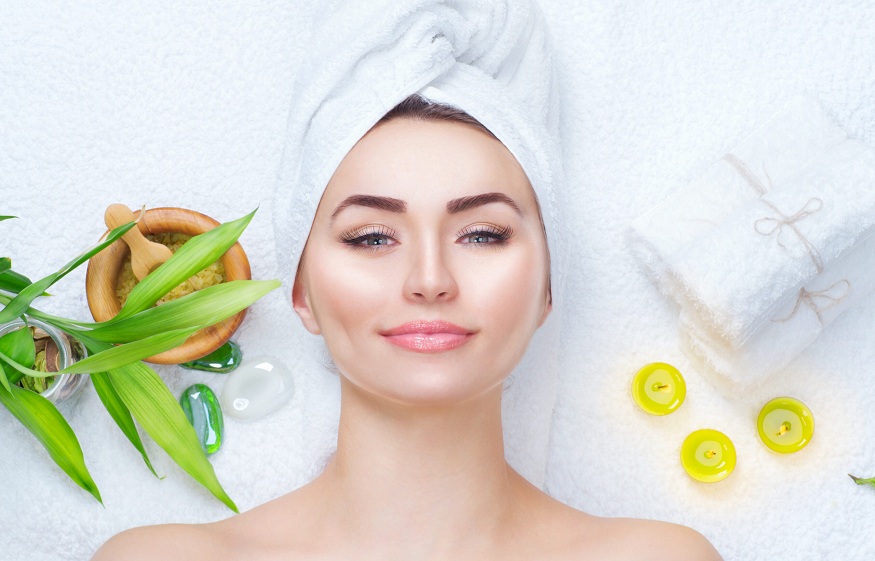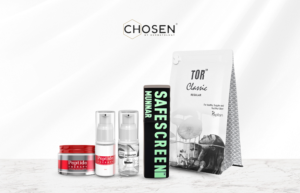VITAMIN C AND SKIN CARE.?
4 min read
Introduction:
Pure Vitamin C is well known as a powerhouse of health benefits, providing benefits ranging from a strong immune system to glowing, beautiful skin. Although you may already be taking vitamin C skin pills or taking a lot of them, your skin may not necessarily benefit as much as it could. It’s no surprise, because Vitamin C is water soluble and your body processes it quickly, excreting much of it before it can be absorbed and put to use. Science has shown that while eating foods rich in vitamin C is a great start to the healthy skin you crave, topical application is the most effective way to noticeably improve skin in a short time.
Research done on vitamin C has shown many benefits associated with topical application. The first study was done at Duke University in the 1980s on the backs of hairless pigs that lived outdoors, which showed that UVB damage (the type of damage caused by exposure in the sun) could be repaired by the topical use of vitamin C. Luckily for you, vitamin C research has become much more sophisticated since then. More recent studies have demonstrated the correlation between topical application of vitamin C and brighter skin, increased collagen production and overall skin health in addition to helping fight the harmful effects of the sun. .
What can vitamin C do for your skin? The list is impressive:
Antioxidant Superpower.What makes vitamin C so special? One of the best-known facts about vitamin C as a skin care solution is that it is a powerful antioxidant. Antioxidants play a crucial role in any anti-aging skincare routine. They work by scavenging free radicals, which are unstable molecules caused by oxidation. Oxidation is the chemical reaction that occurs when oxygen reacts with a substance, such as a browning slice of apple or a rusty fingernail. When this happens on your skin, certain molecules lose electrons (these are free radicals) and cannot replace them naturally, so they try to steal electrons from otherwise perfectly healthy molecules. It is the process by which age spots,
Fortunately, we have plenty of sources of antioxidants, which are molecules armed with spare electrons capable of neutralizing free radicals before they can cause noticeable damage. Although your body naturally produces antioxidants, their production will decrease over time, especially when you and your skin are exposed to things like stress, pollution, and UV rays from the sun. Due to decreased production, your skin needs additional antioxidants to stay young and healthy. Sources of antioxidants are mainly found in plants: green tea, blueberries, aloe and many others – and they are also present in vitamins A, E and, of course, C. Antioxidants not only prevent future damage, but are also able to repair damage that has already occurred. When choosing a skincare product, look for one that contains a blend of many forms of antioxidants. Science has shown that products containing a variety of antioxidants are more effective than those that only use one.
Sun amage Repair
Vitamin C is not only able to reduce the risk of sun damage, but it also helps repair the damage already done..
(1). If you’re young, don’t feel left out: Vitamin C is a very effective preventive care resource for protecting your skin from future sun damage. Vitamin C supports your skin’s ability to resist and recover from UV light damage. While it’s not a substitute for daily use of a broad-spectrum facial sunscreen , it does help your skin defend against exposure. Using vitamin C in your daily skin care routine will help delay the signs of aging and keep your skin looking younger for longer.
collagen production
One of the most important anti-aging benefits of vitamin C is the increase in natural collagen production. In several studies, vitamin C has been directly linked to the production of collagen and in turn the reduction of wrinkles, especially when applied topically to your skin.
Collagen is one of a trio of chemicals that keeps skin tight and looking young. The other two chemicals in the trio are Hyaluronic Acidand elastin, and as these combine with collagen, they form a framework below the surface of your skin that maintains your natural facial structure. As we age our skin begins to sag because there is not as much collagen production as before and this loss of collagen forms wrinkles. Vitamin C helps boost our natural collagen production to optimal levels. When collagen production is increased, your wrinkles naturally fade as your skin’s surface adapts to a tighter, healthier frame.






